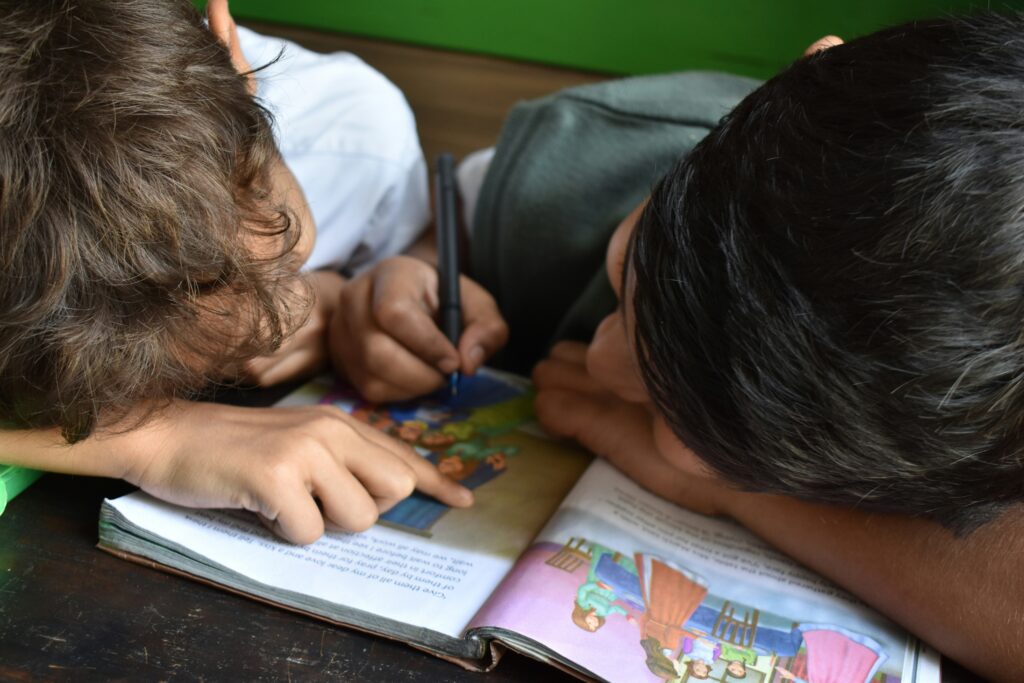If you have a child in primary school then chances are you will be invited into school once a term for parents evenings. This is your opportunity to talk to your child’s teacher about their academic progress, general behaviour and social skills. It is important to remember that if your child’s teacher had cause for concern regarding your child in any of these areas then they would have already been in touch with you to discuss them, it’s unlikely they will bring up major concerns for the first time during a parents evening, especially as they usually lack privacy with a queue of parents either in the same room or just outside, so don’t panic. Instead, these events are more for you both to have a general catch up with each other, for you to have the chance discuss your child’s progress, view some of their work and to get a feel for the school environment in which they spend most of their day. It is also a great opportunity for you to ask any important questions you may have about your child’s academic performance, their school experience or to raise any concerns you may have. Parents evenings are usually done by allocating each child a 5-10 minute time slot for the caregiver to attend, which isn’t very much time at all. One way to handle these very short time slots is to go prepared and have a list of questions you want o ask. If you’re not sure what to ask then try some of the 6 questions to ask at parents evening that we recommend. Remember, there aren’t any right questions or wrong wrong questions when it comes to parents evenings but the 6 questions below are designed to build a more rounded picture of your child and their school life.
6 questions to ask at parents evening and why
What are my child’s strengths?
This is probably the most important question to ask at parent’s evening, what do they think your child’s strengths are? Chances are they will have started the meeting by telling you about your child’s academic progress in general, as well as discussing different subjects, which ones they are excelling in, which ones they are on target for and where they need to improve to be inline with the national averages. But what you need to know is where do they excel, is it in creative writing, drawing, sharing, thinking of others, using their manners. This positive feedback is always great for when you child asks how the meeting went as you an share nice things with them that the teacher has noticed. It’s also important as not all children are academic, and social, sporting, creative skills can be just as important for their future as academic success. It will also help to you give you a deeper understanding of your child and how they are in school.
How can I support my child at home?
This is also a great question. It shows the teacher that you are on board and willing to work with them to give your child the best possible chance in life and provide extra support if and when needed. It is also a great question as it can be used from reception when you may need to help practice reading or fastening buttons, through to secondary school and the GCSE years where you may need to support them with revision. It also allows the teacher to go over their expectations without worrying about insulting you or insinuating that you aren’t already doing things with your child at home.
What’s are the best ways to communicate with you?
This is one of the more thoughtful questions as you are taking the teachers needs and preferences into account but the answer will also be very beneficial to you too. It is really important that you know how and when to communicate with your child’s teacher effectively. Chances are they will use both emails and online platforms to communicate with parents, things like tapestry in primary school and edulink in high school are often the most popular ones. They may also be visible at the start and end of each day but asking them which forms of communication they prefer will make it more effective and also reassure you that asking them questions when needed is okay as you’re doing it in the way they have said they prefer. For example lots of parents will try and talk to teachers at then end of the day, but this puts them on the spot and also takes up time they may not have available, whereas an email allows the teacher to reply in their own time and gives them the opportunity to take on board your feedback or query and gather information if needed. Some teachers will prefer you to use the apps, others will say in person after school on a certain day is a good time for them, and some will prefer it if you make an appointment for an after school phone call, all teachers will be different so be sure to ask if you are currently unsure.
What are my child’s social skills like?
What you want to know here is does your child have a wide network of friends and acquaintances? What are her social interactions like with her peers? Do thy join in with group activities willingly and contribute to class discussions? It is okay if the teacher says you child has one or two best friends as long as they are also friendly with other children and could play or work with them if their close friends were off or put in another group. It is always a good idea to ask your teacher about your child’s ability to work with others as this is a skill learnt at a young age that will massively impact their working life when older and one that is hard to overcome the older they get if not already mastered. Does your child appear to be able to make friends and mix well with others are are they reserved and shy to the point where it could be detrimental. If your child does not seem to be able to make friends easily then ask the teacher what additional support is available to facilitate this.

Is my child generally well behaved?
School will often inform you if your child is disruptive in class, a danger to himself or others, or showing signs or bullying or being disrespectful to staff. However, there is still a lot of low level behavioural issues that can be taking place in school and if this is the case it is best to be aware of it early on so you can nip it in the bud before it escalates and becomes a cause for concern. By asking about your child’s behaviour you are also showing the teacher that you have high expectations from your own child and you are open to hearing about how you can support them and work with your child to ensure they behaving appropriately.
What extra curriculum activities are available and which ones (if any) does my child participate in?
Not all schools will send a list home of extra curriculum actives and therefore unless your child has signed up to them you may not know about them. Some take place in school like choir, head of year, recycling champions, art, dance and sport whereas others my be after school like football, rugby and athletics. If you know what is available you can talk to your child about these opportunities and maybe encourage them to join the ones you think they will like.
You don’t necessarily need to ask all 6 of these questions at parents evening but if you are unsure what to ask then try picking one or two of these to start the conversation going and help you get a clear picture of your child in school.And remember if you do have concerns, or something the teacher says during parents evening makes you concerned then ask for a second appointment on a different day when the teacher can discuss things with you i more detail and in private.
You may also like
27 Things That Will Help Your Child Be School Ready
